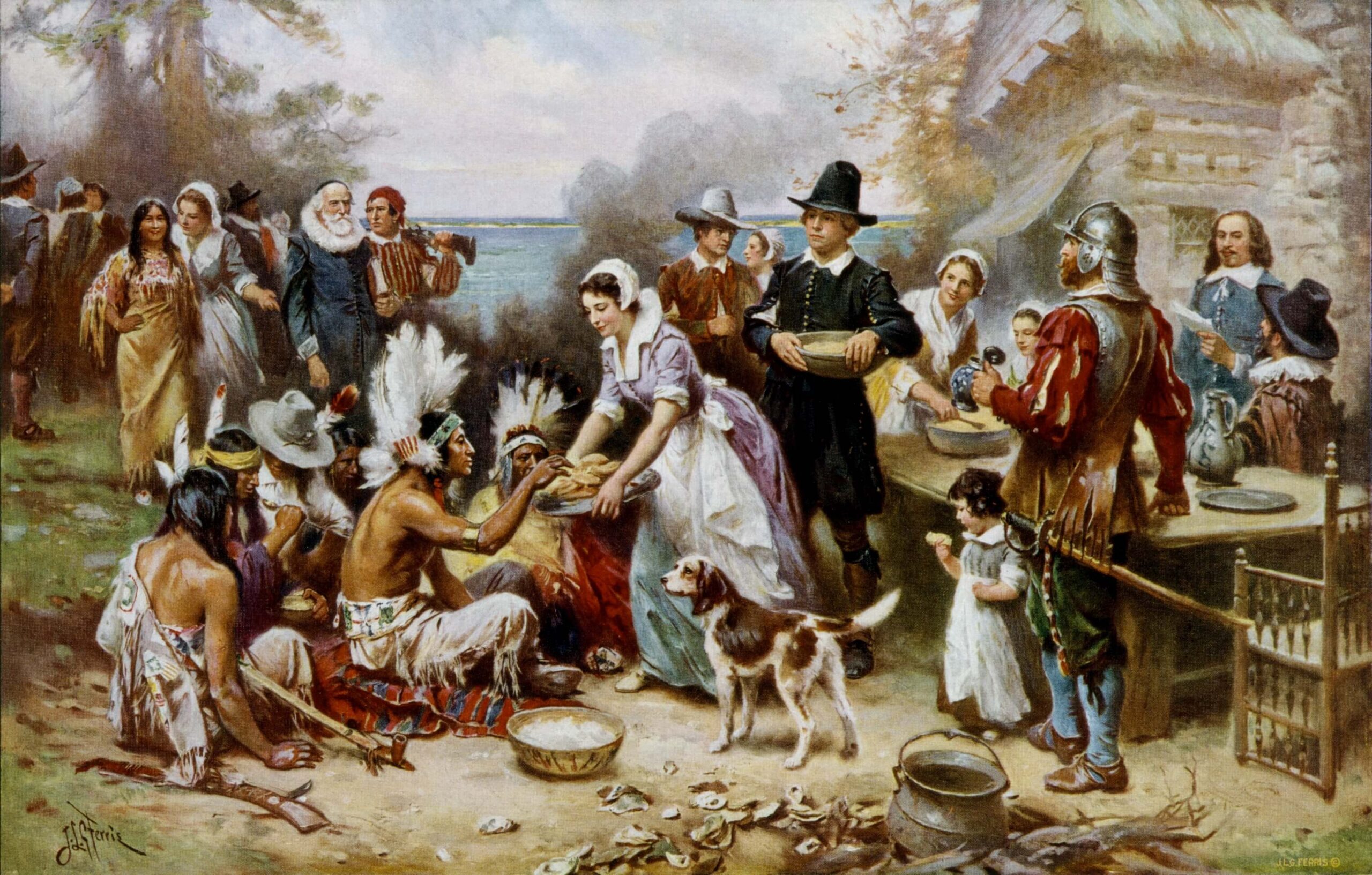The term “Puritan” was first used by the opponents of those English and American Protestants who desired to reform (though not necessarily separate from) the Church of England in worship, doctrine, and polity. In theology, Puritans followed Calvin rather than Luther, though their particular emphasis on experiential conversion and personal piety often distinguished them from Scottish and other European Calvinists. Scholars link Puritanism to English and American concepts of morality, politics, religion, education, business, and the arts. Puritanism has been associated, favorably or unfavorably, with most modern philosophies and movements in politics and religion. What is uniquely Puritan in England is not always easy to discern. But Puritan (also called Pilgrim) thought has uniquely influenced America since the foundation of her first colonies. The Puritan vision of America as a “city on a hill” has uniquely shaped the American view of life and politics and continues to influence what Sacvan Bercovitch calls “the American self.”
The term “Puritan” has typically been used as a term of derision intended to communicate an overly zealous reformist spirit. Those conservatives who have focused on the Puritans’ revolutionary character have tended to scorn Puritanism. In The New Science of Politics (1952), for example, Eric Voegelin elaborates on the criticisms of Richard Hooker and labels the Puritans gnostic revolutionaries. But other conservatives see Puritan traits as inherently conservative. In The Roots of American Order (1974), for example, Russell Kirk sees Puritanism in America as a bulwark against moral revolution and the modern spirit. Kirk also sees the “Puritan inheritance” as integral to understanding American political thought. Regardless of the intent or consequence of Puritan reforms, Puritan views on society, church, and state have become integral to the British and American worldview, especially the Puritans’ pessimism towards human nature and their hope for the victory of the church in history.
Puritan views on society, church, and state have become integral to the British and American worldview.
Puritan worship services took place in buildings devoid of traditional ornamentation and were neither ceremonial nor liturgical. Exegetical and expository preaching rather than the sacraments formed the center of Puritan worship. Puritan church leaders rejected the traditional church calendar and its holidays as interfering with a simple and spiritual worship style that emphasized personal knowledge of the Bible and the pious duties of the laity. While the Puritans saw their efforts as the restoration of worship in the spirit of the early church, critics have charged that their reforms inevitably led from piety to rationalism. Whether this rationalism led to Unitarianism and transcendentalism in America is a subject of lingering debate.
In church governance, Puritans rejected formal and extensive hierarchy as “Popish.” Instead, Puritan churches favored a Congregational or Presbyterian structure that gave congregations varying degrees of autonomy and emphasized the leadership of ruling and teaching elders within the local church. Church members were expected to have a close knowledge of the Bible and to attend worship regularly. The Puritans’ emphasis on congregational autonomy and personal religious experience has led many to see them as a source of the democratic spirit in American politics. But such a claim must also take into account the Puritans’ emphasis on “calling” and their distrust of democratic civil government and antinomian theology. The Puritans did require education for all, but their requirement for the extensive training of clergy in particular discouraged the egalitarianism more characteristic of Methodists and Baptists. Indeed, the Puritans’ emphasis on higher education inspired them to found Harvard, Princeton, and other famous institutions.
English Puritans confronted questions about political liberty and religious tolerance in the Putney and Whitehall debates in 1647 and 1648 during the Puritan Revolution. American Puritans debated similar questions in famous controversies surrounding Anne Hutchinson and Roger Williams. In Democracy in America (1835), Alexis de Tocqueville writes about the importance of Puritanism to the American spirit and suggests that Puritanism was as much a political theory as a religious doctrine. He suggests that Puritanism encouraged both a republican and a democratic virtue and has enabled the kind of civic responsibility necessary for limited and federal government.
The Puritan Jonathan Edwards is considered by many to be America’s greatest theologian. Together with the Puritan George Whitefield, Edwards was also instrumental in inspiring American revivalism and its emphasis on personal virtue. The Mathers— Increase, Cotton, and Richard—embody a rich multigenerational history of American intellectual thought. In England, John Milton is associated with Puritanism in literature, while Oliver Cromwell is famous for his revolution against Charles I. The English Puritan John Bunyan is famous for his enormously influential Pilgrim’s Progress (1678). Finally, the political ideas of the Puritans John Winthrop and William Bradford are essential for an understanding of America’s colonial experience.
Further Reading
John Adair, Founding Fathers: The Puritans in England and America
Perry Miller, The New England Mind: From Colony to Province
Perry Miller, The New England Mind: The Seventeenth Century
Perry Miller and Thomas H. Johnson, eds., The Puritans: A Sourcebook of Their Writings
Leland Ryken, Worldly Saints: The Puritans as They Really Were
This entry was originally published in American Conservatism: An Encyclopedia, p. 696.














